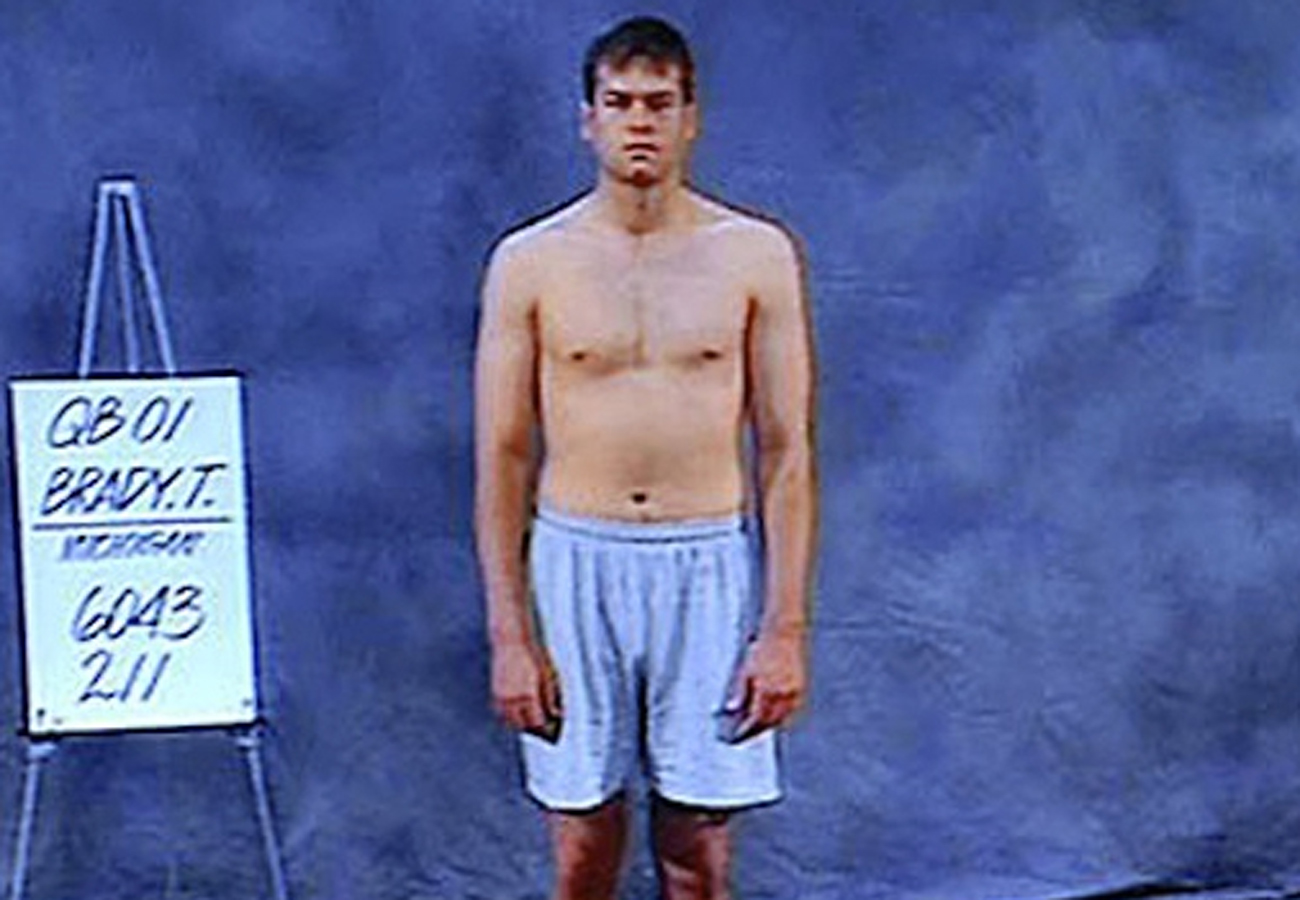An alternative history of Tom Brady

I’ve had a long-running argument with a couple of other Michigan football fans about New England Patriots coach and quasi-general manager Bill Belichick. Their argument is that Belichick is at best an average coach, and indeed may not be above replacement level (These people btw are usually pretty level-headed and aren’t prone to make obviously insane arguments, although I consider this one to fall into that category).
Basically their argument is that:
(1) Tom Brady is the greatest quarterback in football history.
(2) In the contemporary NFL quarterback is an incredibly important position.
(3) Belichick’s record as a head coach without Tom Brady as his starting QB is something like 71-79 at last check.
Hence it’s clear that Belichick sucks without Brady, and essentially all of New England’s success under Belichick is due to Brady.
I think this argument is ridiculous. While claims (1) and (2) are both fairly non-controversial at this point, the idea that a single player, even a quarterback, in a game like football could produce seven Super Bowl victories and 13 or whatever AFC championship game appearances even though the team was burdened with a below average head coach (and director of player personnel — which Belichick also was during most of these years) is just wildly implausible, for reasons I find increasingly tedious to elaborate to them, so I won’t do it here.
What interests me though is a related question, which is the following counter-factual: what would have happened to Tom Brady if Drew Bledsoe hadn’t nearly died after a freak injury in the second game of the 2001 NFL season? Bledsoe was 29 at the time; he was without doubt one of the top five QBs in the NFL, and indeed had just signed what was then the richest contract in the league’s history: a ten-year $103 million deal.
Absent that injury, there’s every reason to think that Brady would have never gotten a shot at the starting job in New England. The most likely role for him would have been four or five seasons as Bledsoe’s backup, at which point, if he was lucky, he would get an opportunity to fight for a starting job with another team, when his rookie contract expired.
At that point he would be fighting an uphill battle to get established as an NFL starter however. In this alternative history, he would be an obscure veteran, the 199th player picked in the 2000 draft, after a solid but less than spectacular college career at Michigan, where he was the unchallenged starter for just one of his five seasons with the program.
It’s easy to say now that well of course he would have easily won a starting job somewhere, and gone to become an NFL superstar once he got a chance to play full time, but riddle me this: What if he had signed with the Detroit Lions or the Cleveland Browns, or some other incredibly inept organization? How easy would it have been for him to get lost in some chaotic sorting out of options, in which maybe he starts a few games but gets replaced when the team is losing? (These organizations are terrible so they’re losing all the time no matter who is quarterback: see for example the career of Matthew Stafford with the Lions and what happened when he went to the Rams). And Brady, after all, was not a great quarterback until around his fourth season as the Patriots’ starter: before then he was good, but the team was to a great extent carried by Belichick’s defense.
Now maybe Brady would have overcome all that, or maybe he would have been lucky enough to sign with an organization that maximized the development of his latent talents, as New England so clearly did.
But the point here is that there’s an enormous amount of randomness in even such a relatively meritocratic enterprise as elite professional sports. Tom Brady is the greatest quarterback of all time, but it’s extremely easy to construct alternative scenarios in which he would at this point be long-retired and completely forgotten by NFL football fans, as almost all sixth-round draft picks are 22 years down the road.
And what’s true for elite athletes is even more true, of course, for ordinary people in ordinary life. Randomness, which is a fancy name for luck (or vice versa I suppose) always plays an enormous role in the course of human events. This, above all, is what the defenders of our various versions of “meritocracy” (a term that was meant to be one of derision by the academic who invented it) are so eager to deny.


